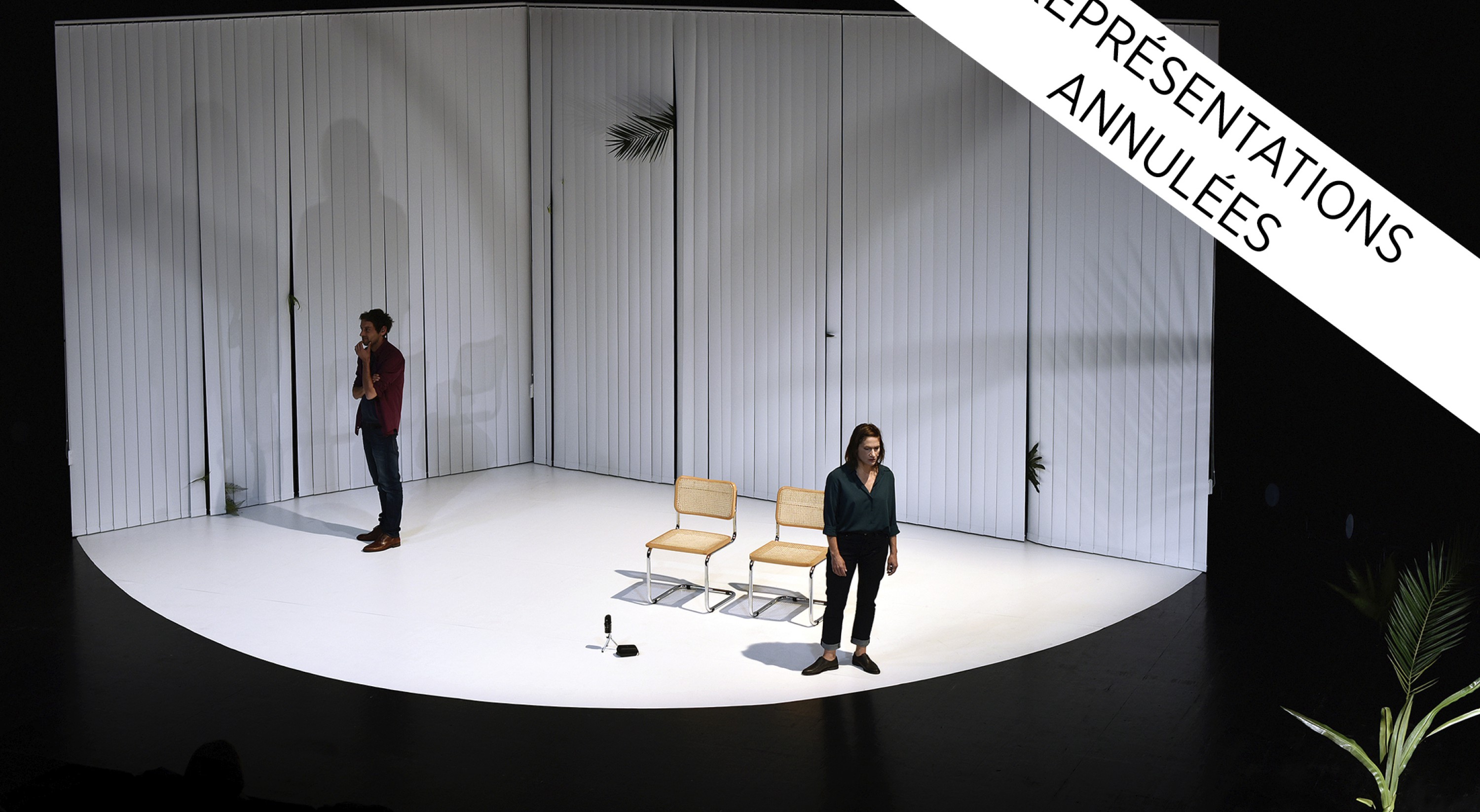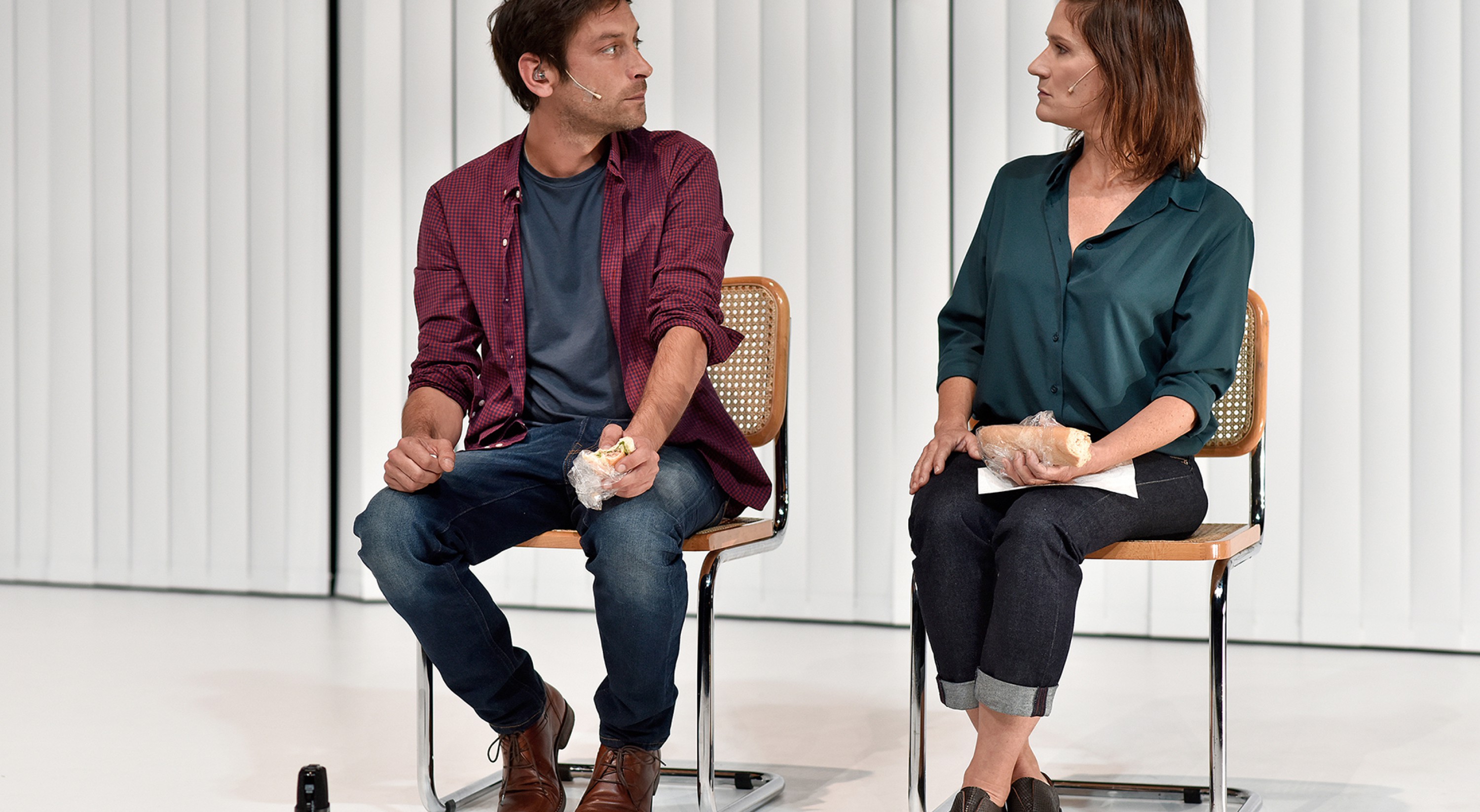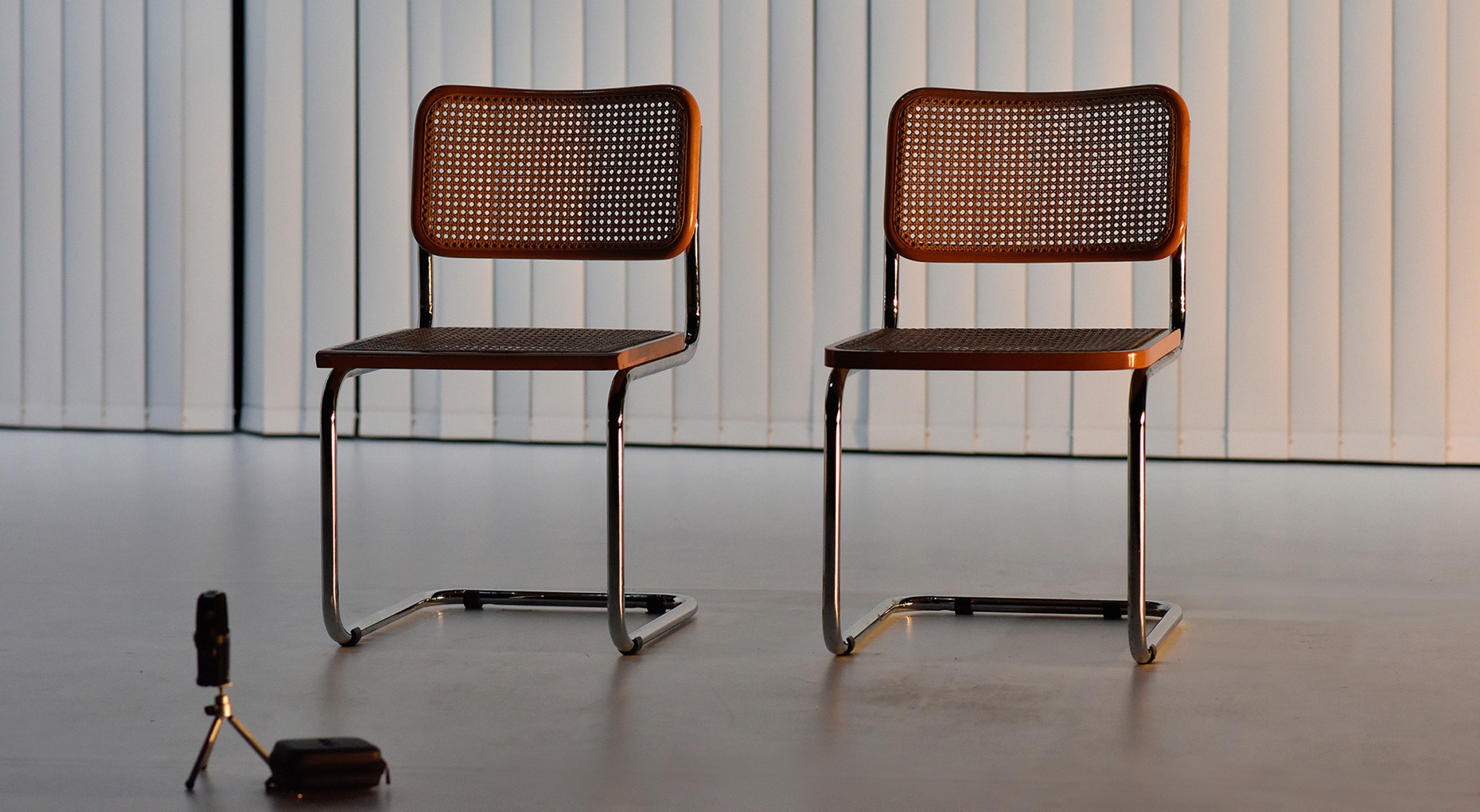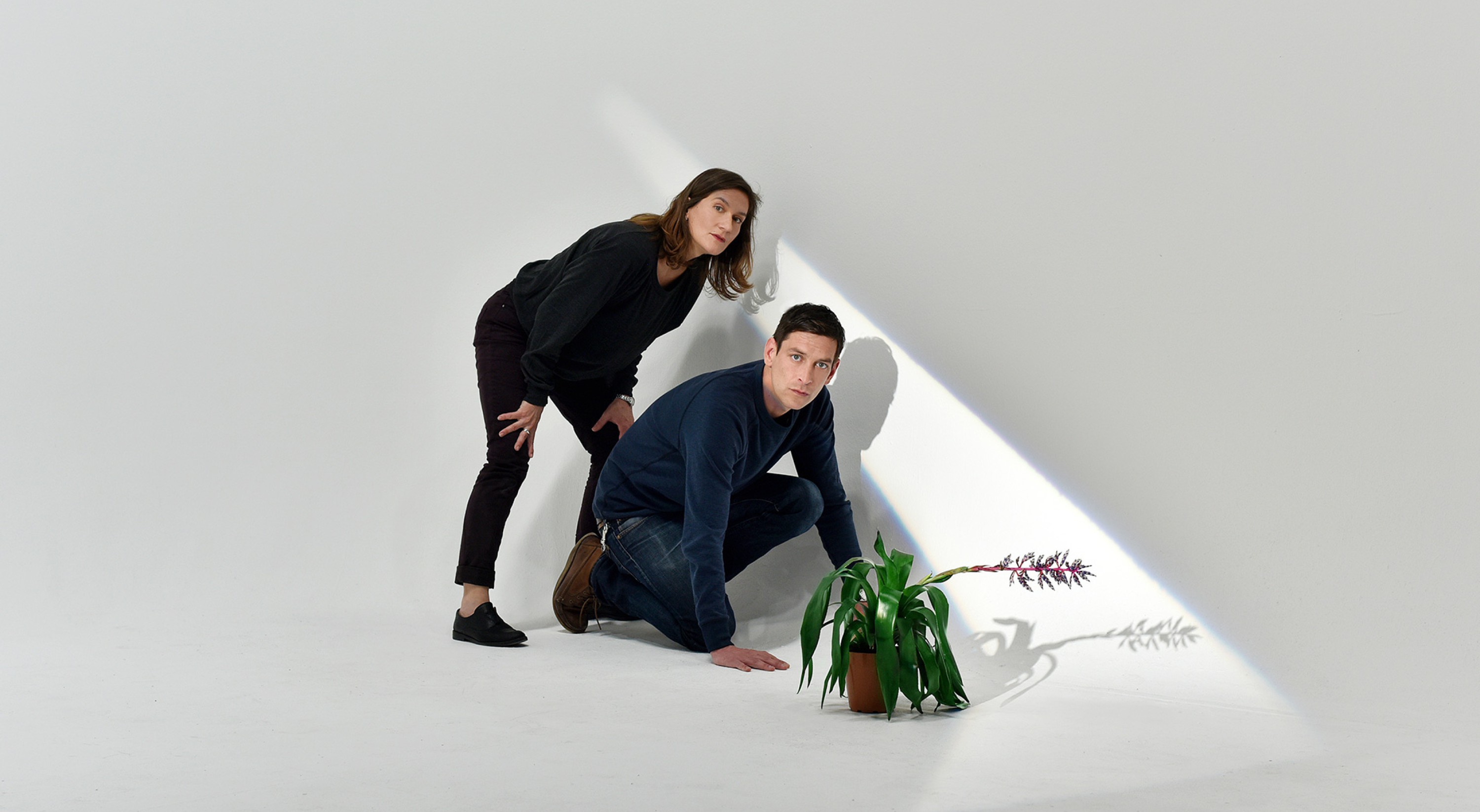Émilie Rousset
An encounter with Pierre Pica
novembernov 10 – 21
Conceived and directed by Émilie Rousset
With Emmanuelle Lafon and Manuel Vallade
Music, Christian Zanési
Artistic collaboration, Élise Simonet
Lights, Florian Leduc
Sound, Romain Vuillet
Scenography design, an original idea from Célia Gondol, adaptations from Temporary Overlap and Expansion not explosion
Scenography, Florian Leduc & Emilie Rousset
Stage management, Jérémie Sanames
Administration, production, BureauProduire
A John Corporation production
With support from Fondation d’entreprise Hermès as part of its New Settings programme
A coproduction with Le Phénix, Scène Nationale (Valenciennes) ; Festival d’Automne à Paris
In association with Théâtre de la Bastille ; Festival d’Automne à Paris
First performed on 15 October 2018 at Théâtre de la Cité internationale (Paris) with the Festival d’Automne à Paris
Using archive material and documentary inquiry as her starting point, Émilie Rousset’s performative research projects explore the theatrical potential present in the gap between original document and its representation.
Émilie Rousset has turned work done on documentary sources, and in particular on spoken words which have been gathered up and recorded, into the subject matter for a form of theatrical research which explores all the different possibilities of their onstage transposition. For the last three years, she has been involved in a dialogue with the linguist Pierre Pica, one of Noam Chomsky’s former pupils and collaborators. Fifteen years have now passed since Pierre Pica began researching the Munduruku, an indigenous group living in the Amazonian rainforest. He has been studying their language and, more specifically, their relationship with numbers, in that their system of counting is an approximative one, a characteristic that is a source of fascination for the researcher. From her conversations with him, Émilie Rousset has extracted the material for a performance by actors Emmanuelle Lafon and Manuel Vallade. The duo perform these exchanges which are hilarious, erudite and unsettling all at the same time. Linguistics-related questions echo those relating to the spoken word in theatre. The process of scientific research blends in with that of the writing of the piece. The approximative world of the Munduruku takes over the stage.
See also
In the same place



